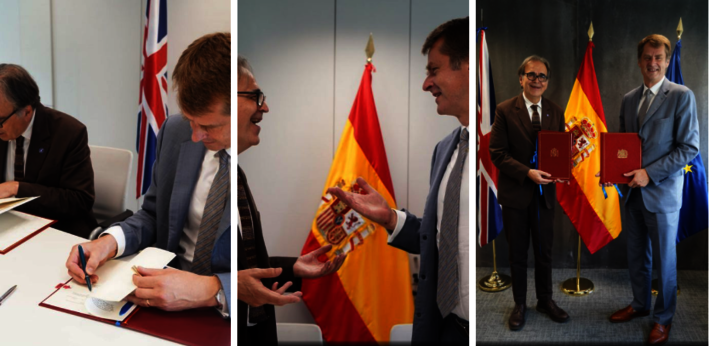You are here
Home ›17/07/2017
Romanian budding IT industry and opportunities for cooperation
Romania has recently become one of the promising hotspots for innovation in Eastern Europe. The country’s blossoming IT industry, supported both by the growing presence of multinational companies which have established large developmental departments there (Microsoft, Xerox, Amazon, Continental, Bosch, Delphi etc.) and the efforts of the national government, is already contributing to as much as 3% of Romania’s GDP, and the economic output of the sector is expected to exceed €4.1 billion in 2017. Forecasts for the future are outlining an even more optimistic picture: a growth of 15.9 per cent by 2018, and a market volume that approximate €6.3 billion in 2020.
Owing to the lower costs of production and more than 80% of English fluency rate in the IT sector, Romania is one of the most popular outsourcing choices in Europe. The total software and IT industry has witnessed considerable growth in terms of workforce. While in 2013 the total number of employees in the IT sector accounted to 65,930, today Romania hosts 90,380, and this number is expected to grow by 113,850 in 2020. Productivity (€/employee) is also on the rise, having moved from 35,947 in 2013 to 45,309 this year (with an expected reach of 55,248 in 2020).
The county has also been able to develop its own IT-specific hotspot - the growing IT cluster of the city of Cluj-Napoca has been dubbed the emerging Silicon Valley of Eastern Europe. The city is inhabited by more than 400 IT companies, employing more than 15.000 people (which approximates almost 10% of the entire active working force of the city). Companies in the region account for an impressive 70%-share of Romania’s IT exports.
One of the reasons of Cluj-Napoca’s success is the educational sector. Approximately 100,000 students are enrolled in the city’s ten public and private universities. More than 2,000 graduate each year with a specialty that relates to technology; from computer science to robotics. During 2015/2016 there were 36,661 students on Information and Communication Technology (ICT) programmes nationally. This represents nearly 7% of the total number of UG and PG students in Romania. End of Cycle Report released by UCAS in 2016 showed that Romania had the highest number of applications to computer sciences outside the UK.
To sum up, in the mid- to long-term perspective, Romania could strengthen its position as a leader in the IT industry in Eastern Europe. However, to achieve that, it would need to further develop the relationship with the wider European innovative networks, and to build robust links with foreign institutions, including in the area of research and education. Transnational Education is one of the areas of British Council Romania expertise.
British Council works in collaboration with Romanian universities and supports their internationalisation agendas by helping them build stronger links with UK institutions. The University “Politehnica” of Bucharest and The Bucharest University of Economic Studies are two major HE providers in the area of ICT in Romania, and the British Council works with both. The next series of TNE events will be organised in collaboration with these partners as a part of the Study UK Exhibition pack in November 2017. Please see the agenda and registration here, and if you want to learn more, please contact Gabriel Ivan - Gabriel.Ivan@britishcouncil.ro.






